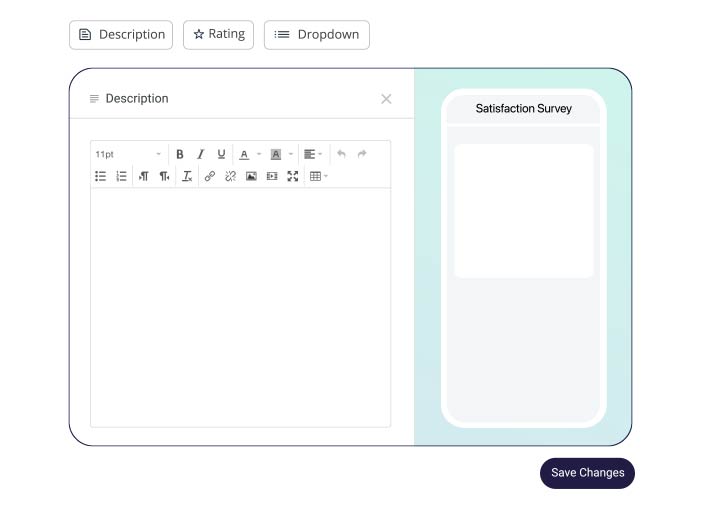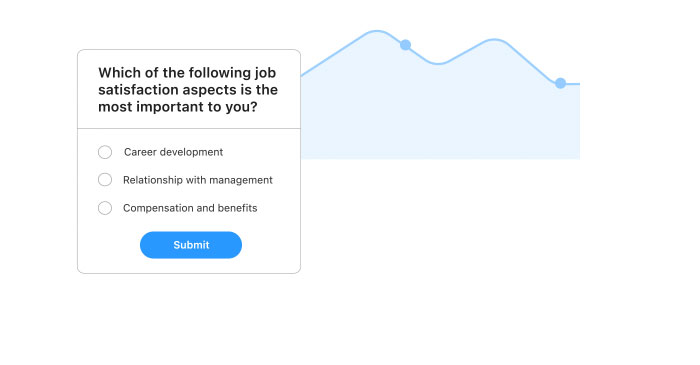Knowing the signs your employee is about to quit can help you take steps to avoid a resignation. In our guide, we share the most common indications that a worker is about to leave and explain why some behaviors show up right before a departure.
Even though all businesses prepare for staff turnover, it’s still a challenge when an employee quits. It can mean less talent contributing to work and a scramble to cover shifts.
Chances are, even when an employee’s departure is sudden, they’ve been thinking about it and preparing for a while. But what are the signs to watch out for? What behaviors might a worker exhibit that signal they’re looking to leave the company?
In this article, we cover 14 signs your employee is about to quit, so you’re not blindsided by a resignation.

Absenteeism
Human resources staff may notice an employee is absent from work more often and is submitting more leave requests. Some workers may even be taking sick leave last minute or being “no call, no shows”—where they don’t call in sick and don’t show up for their shifts.
There are a few reasons why this could be a sign that your employee is considering leaving the company:
- They might be absent because they’re applying for other roles and attending interviews, which usually happen during work hours.
- They may want to use up any vacation time and sick days they have before leaving.
- They may be experiencing burnout or be so unhappy at their job that they’re avoiding the workplace as much as possible.
Lack of Commitment to the Future
Before an employee leaves, they’re probably already thinking about the future without your company. Because of this, they may be reluctant to commit to anything long-term. You might notice a worker is no longer accepting invites to future work events, for example. Or, they could be hesitant to commit to a new project that will take a significant amount of time to complete.
Presenteeism or Quiet Quitting
These terms refer to an employee not being fully engaged at work. They’re physically present but emotionally absent. Workers who engage in presenteeism or quiet quitting typically do only the bare minimum in their tasks. They don’t go out of their way to exceed expectations or take on extra responsibilities. Similarly, they’re unlikely to engage in any optional activities such as volunteering for committees or attending team-building events.
According to Gallup, about 50% of the American workforce engages in quiet quitting. Part of the reason may be that these workers are unmotivated and unhappy at work, meaning they’re not fully present in their roles.
The Harvard Business Review also reports that quiet quitting may be our brain’s natural response to job stress. When faced with persistent stress, many people tend to enter a state of “learned helplessness,” where they don’t even feel capable of making an effort.
This Might Interest You
Check out our article on how to announce an employee’s departure to the rest of the team.
Less Self-Development
Another warning sign of an employee’s departure is a lack of interest in self-development. A worker may fail to take advantage of employee training, for example. They may show less interest in any professional or personal development opportunities your organization offers. They might even refuse new roles that offer the opportunity to grow and take on new responsibilities.
Part of this may be because the worker no longer pictures themselves progressing at your company. They could be taking part in self-development elsewhere to advance their job search. Should an employee quit suddenly after opting out of personal development, it could be a sign that they’ve felt so unhappy that they simply don’t want to work on themselves at your organization.
Slower Response Times
A research paper published in the Academy of Management Discoveries found that slower response times can be one of the signs an employee is leaving or at least considering quitting.
This could look like a team member who once responded immediately or within a few hours now taking 1-2 days to reply to emails, notifications, and other notices. Some communications may not get a reply at all.
There are a few possible reasons for this:
- Employees may be busy looking for other work. They might be distracted by that process during work hours and miss important notifications.
- They may feel less engaged or even upset by their current work situation, making them reluctant to communicate.
- They might no longer enjoy their role and may have a hard time motivating themselves to answer emails, messages, and other communications.
Personality and Attitude Changes
If a team member goes from amiable and cooperative to argumentative and irritable, it could be because they’ve grown frustrated with their current work situation and are considering quitting. It could also indicate some problems in a worker’s personal life. Arguments with colleagues, sudden opposition to policies, curtness, and even emotional outbursts can all be signs to watch out for.
According to the American Psychological Association, changes at work are a leading cause of stress that can lead to cynical attitudes and even physical symptoms. Should an employee decide to quit, it’s still a major and stressful change. The job-search process can also be difficult, especially when a worker is job hunting secretly and may be stressed about being found out.
Declining Productivity and Job Performance
Before an employee’s resignation, you may notice that they’re completing less work than usual and the quality of their work has declined. Employees could start making errors they weren’t making before. Managers may report workers falling behind on projects or work orders in this situation, too.
A few things are often behind this:
- If a worker has come to dislike their job, it’s common for them to procrastinate on tasks and put in less effort, affecting the quality of work.
- Employees who are overwhelmed may put off work too, causing them to miss deadlines.
- Looking for new work is time-intensive as well. If a team member is focusing on that, their work performance and productivity can suffer.
Increased Engagement on LinkedIn and Other Job-Hunting Resources
If an employee has started looking for another job, that’s a pretty clear indication that they’re considering quitting. But it’s difficult to determine whether a worker is actually searching for a another role.
While they may not announce that they’re actively job-hunting, updating their LinkedIn profile could be a sign of an upcoming resignation, as they need to update their résumé and make connections to land a new job.
Gaining more followers on LinkedIn or joining professional organizations or networking events outside of your company could also be warning signs an employee is leaving.
A Major Life Event
A big life change isn’t always a sign an employee is about to quit. However, if you start noticing employee dissatisfaction, more absences, and changes in attitude alongside a major event, these could be precursors to that employee quitting. These events can include marriage, divorce, a death in the family, having a baby, or being diagnosed with a chronic illness.
Workers who are experiencing big life events could be considering quitting because their priorities and goals have changed. For instance, facing a lot of stress in their personal lives can make an individual’s job seem less important. Or, a role that was a great fit before may not meet their current needs if they’ve had a child or are suffering health issues.
Less Social Interaction at Work
Team members who are thinking about leaving may interact less socially. You might notice workers avoid casual chatter on company messaging platforms, or that they start to miss social events or work parties. The employee could even become isolated at work and be invited to fewer events. Another sign is that they might have stopped asking colleagues about themselves and may not offer any updates about their lives outside of work.
Employees who are no longer as social as they used to be could be trying to avoid awkward questions. If they’re looking for a new job, they might feel like they’re keeping a big secret and don’t want to let anything slip. Workers who are thinking of quitting might already feel disengaged at work and see no point in socializing.
Unrealistic Requests
An employee who’s searching for another position outside your company may suddenly ask for a big promotion or raise beyond what’s expected in their role. The worker could be wanting to see if you can match any offers they’re considering, or looking to feel more recognized in their current role. It’s likely that a team member who makes these unexpected requests is weighing up the pros and cons of quitting before making their final decision.

More Personal Communication at Work
Pay attention to employees who suddenly take more personal phone calls at work or message people in their personal lives while on the clock. You may notice them checking their phones more often or ducking out of work to take a call.
This may be because there is a major life event taking place. It could also indicate the worker is less engaged or is even taking calls from recruiters or other companies as part of their job search.
Resignation of Close Colleagues
Resignations sometimes come in waves. When one worker quits, it can lead to other employees leaving—particularly if they had a close working relationship with the initial resignee.
Your existing employees may be interested in the opportunities available at their colleague’s new organization. They might have been inspired to look for new opportunities to advance their career elsewhere.
It can also be hard for workers to lose a friend at work. This can cause loneliness and dissatisfaction that can lead to resignation.
The Company Undergoes Significant Changes
It’s exciting when your business launches a new product or service, hires new workers, undergoes a merger, or implements a new way of doing things. But it’s not unusual for some workers to leave after significant changes at your company. When an organization changes its mission, company core values, operations, systems, or processes, not everyone will be able to adjust.
You might notice team members being critical of the changes, refusing to adapt to new policies or communication styles, or quitting with little warning. Sometimes, employees in the departments and roles affected most by a change resign at a higher rate than other workers at the business.
Some workers may decide to leave if they don’t align with the new company vision, for example, or find that the new processes make their job harder. New supervisors and managers could also push away some team members if there’s a personality clash. Sometimes, change could make workers afraid they could be fired as part of the developments they’re seeing, pushing them to start applying for new roles elsewhere.
Are You Seeing Signs Your Employee Is About to Quit?
There can be plenty of signs that a worker is potentially struggling and looking for a new job, but it’s important not to jump to conclusions. If an employee is showing signs of dissatisfaction, it won’t necessarily mean they want to leave.
Still, being aware of the signs of an unhappy employee can help you communicate with your team member and plan for a possible resignation. Spotting the signs of a potential employee resignation can help you intervene early, so you can prevent the loss of talent at your organization.
Keeping an eye out for indications workers want to walk away is also a great way to take the pulse of your company. You can improve overall morale and satisfaction by addressing any workplace challenges that make employees so unhappy they want to quit.
